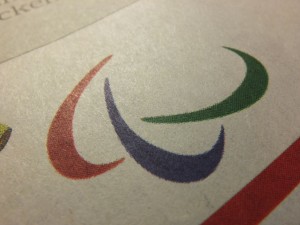 It is only a few short weeks since – in the run up to the 2012 London Olympics – the inhabitants of this sceptic isle regarded the whole extravaganza with their accustomed disdain. They grumbled about the cost – complained about the upcoming traffic chaos – delighted in every minor news item featuring incipient incompetence on the part of the organisers – and a significant number were prophesying impending doom at every step.
It is only a few short weeks since – in the run up to the 2012 London Olympics – the inhabitants of this sceptic isle regarded the whole extravaganza with their accustomed disdain. They grumbled about the cost – complained about the upcoming traffic chaos – delighted in every minor news item featuring incipient incompetence on the part of the organisers – and a significant number were prophesying impending doom at every step.
It took all of 60 seconds of Danny Boyle’s magically mysterious opening ceremony to dispell all possible doubts and to convert us into a nation of true believers.
The IOC were fully vindicated in their decision to place their faith in London to stage the games ahead of the French. Yes – in Paris the cuisine would have been superb and the style impeccable – but the IOC had the insight to recognise a more essential truth about the British people. We are a nation of sports fanatics! The games sold out – and huge adoring crowds cheered the heroics of our brave Olympians as they took home more medals than we have won at any Olympic games for the past 100 years.
And then it was over – and the reaction kicked in. We were depressed. We missed the adrenalin rush. The start of the kissball season seemed even more uninspiring than usual. The rugger season had not yet commenced. Where could we turn to rediscover those legal highs?…
Well – to the Paralympics of course.
Now – if there is one thing the Brits love even more than a sporting contest it is one in which they can support the underdog. It is in our national psyche. In the Paralympics – of course – it is possible to consider all of the contestants to be underdogs – and we just love those tales of triumph over adversity. As a result the stadia are yet again full to bursting and the rest of us are glued to our screens.
This increased exposure for disabled sport does raise a few issues, not least of which is the question of acceptable use of language when discussing the sports and the competitors therein engaged. There are obvious ‘no-nos’ which need not detain us here, but there are also areas that are less clear. It has been suggested in parts of the media that the use of terms such as ‘brave’ and ‘inspirational’ could – when applied to Paralympians – be considered discriminatory or even pejorative. The thinking here is that such language is divisive and that the Paralympians themselves wish to be seen simply as elite athletes rather than as plucky tryers.
I have some sympathy with this, but from the impartial enthusiast’s point of view this is rather a shame. When one thinks of the huge amount of work that athletes such as Bradley Wiggins, Chris Hoy, Jessica Ennis, Mo Foster, Andy Murray and Ben Ainslie have put into their golden achievements it is difficult not to be inspired. When considering Paralympians who – in addition to making similar efforts and sacrifices in terms of athletic preparation – have in many cases also had to overcome crippling illnesses, to recover from tragic accidents or have been seriously injured in the service of their country – then I think ‘inspirational’ is indeed the appropriate term.
What decidedly is inspirational is the response of the attending crowds. The foundations of the Olympic village have been shaken repeatedly by the capacity crowds cheering such golden moments as Sarah Storey chewing up the track in the velodrome for the first of her three (thus far!) gold medals, or Ellie Simmonds hunting down American Victoria Arlen in the S6 400m freestyle in the Aquatics Centre. The sight and sound of 80,000 people in the stadium itself howling encouragement for iron-man Dave Weir as he out-thought, out muscled and out-sprinted the rest of the field in the T44 wheelchair 5,000m will live with me for a long time, and not a single medalist mounted the podium to anything other than a rapturous reception.
To me the whole event – like the Olympic games that preceded it – has indeed been inspirational. The only trouble is – what will we do when it is over?


Recent Comments